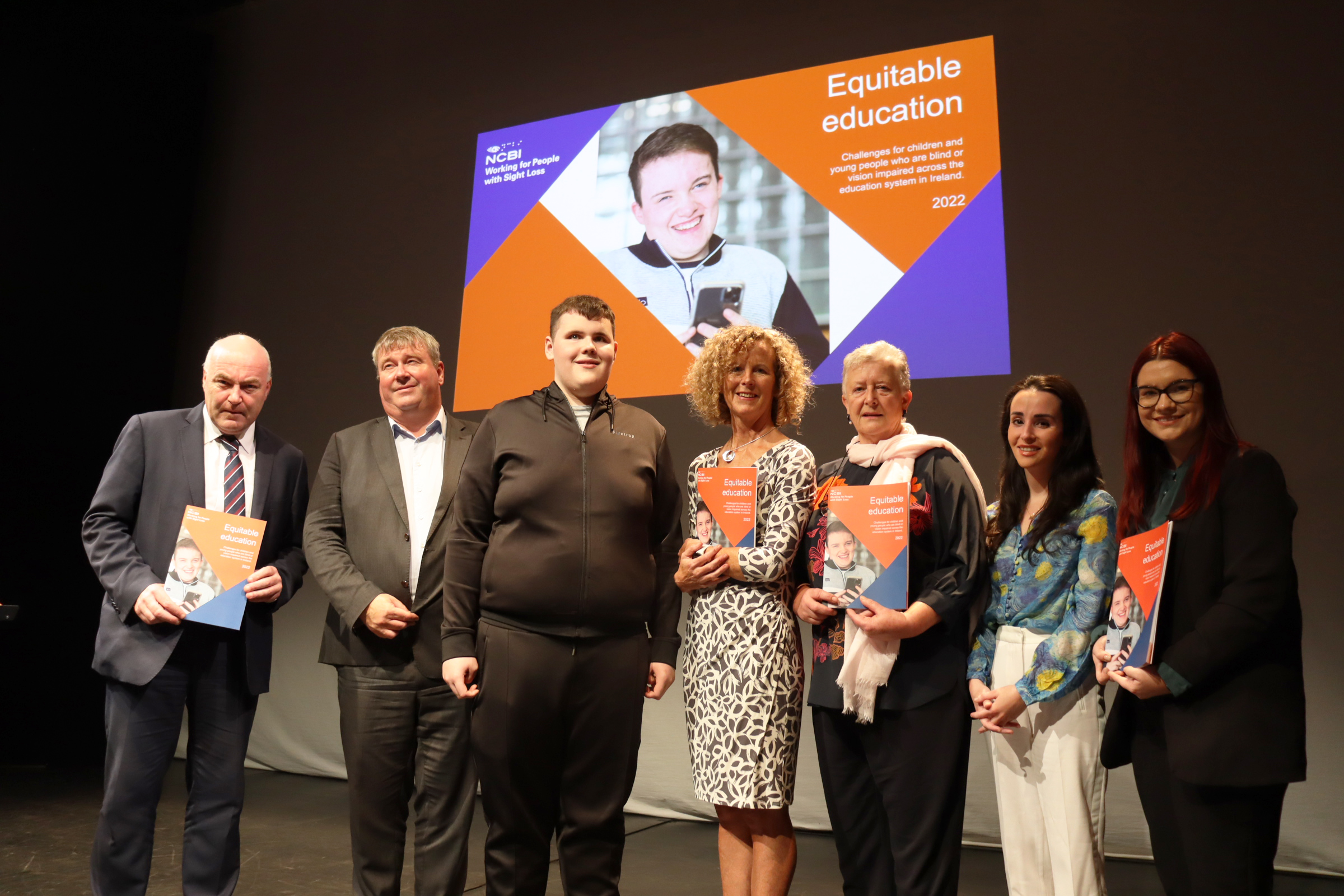
Thursday 22nd September 2022, NCBI has launched a new report entitled Equitable Education, detailing the challenges faced by students who are blind or vision impaired, and their families, in the education system. The report, based on the experiences of students and their families, contains a series of recommendations aimed at the Government and state agencies to ensure that all students, regardless of their level of vision, have access to an equitable and inclusive educational experience.
Lorna Fitzpatrick, NCBI Advocacy and Engagement Manager said “Sight loss is a spectrum and can impact everyone differently, so it is imperative that children and young people with sight loss have access to regular individualised assessments and timely interventions to ensure they have the skills to be independent and active agents in their own learning.
“The report clearly shows variations that exist in students’ experiences in accessing supports as well as the severe lack of quality data on the number of students with vision impairment in the education system or evidence to demonstrate that current supports are enabling these students to thrive. This data will be key to driving future decisions relating to supports for students with sight loss and must be a priority for the Government Departments and state agencies.”
Eithne Walsh, Head of Communications and Advocacy with Féach said “This report marks a great starting point for improving supports for blind or vision impaired students in education. The issues highlighted in the report have been denying students with low vision equality of access to education, which ultimately affects every aspect of their lives. None of the issues are insurmountable, practical solutions can be put in place which will have a huge impact on their educational outcomes.”
The Equitable Education Report describes many of the challenges faced for students who are blind or vision impaired from primary education through to tertiary education. It focuses on solutions that are needed to support children and young people with sight loss to access learning and to develop the skills to support them as they transition through education.
A recent AHEAD report shows that only 282 blind or vision impaired students are registered with Disability Support Services in Higher Education in 2020/2021. Further to this, only 24% of people who are blind or vision impaired are employed in Ireland. The low representation of people living with sight loss in higher education and the workforce demonstrates the need to implement changes throughout the education and employment systems to ensure they are supported to take up and achieve success throughout their lives.
Some recommendations, which are outlined in more detail from page 4 of the report, include:
- Establish a database on the availability and delay of schoolbooks in accessible formats at beginning of each school year with the availability of learning materials as a KPI within the Department of Education on the timeline of delivery.
- Review of SUSI eligibility criteria to provide support for students who are blind or vision impaired studying on a part-time basis.
- Address the deficits in the provision of assistive technology and access skills to learning through the introduction of formalised procedures for individualised assessments and training to support optimum use of technology for learning.
- Develop school transitioning protocols determining and agreeing content and the delivery of comprehensive transitional plans for children who are blind or vision impaired.
- Fund the introduction of dedicated resources nationwide, similar to those in the south of the country, to deliver orientation and mobility supports for children and young people.
- Agree to a formal process of engagement with students to ensure that their experiences influence positive change.